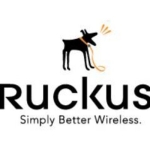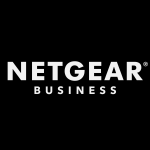What is our primary use case?
Until we switched to Ruckus about a month ago, we had used Cisco Wireless products for the past ten years at our school of about 1800 students and 250 employees, including the teachers. The teachers and students all use iPads so wireless (Wi-Fi) is a big part of our network.
We used Cisco for everything, including wired switches, wireless switches, the core switch, etc. For the wireless network we used Cisco WiSM, which is the old version of Cisco's wireless controller. Since we had used this Cisco equipment for so long and it was showing its age, we ultimately decided it was time for us to renew everything along with all the new features that are now available.
What is most valuable?
I enjoyed Cisco's Meraki MDM which we already had installed, even though at the end of the day it was too expensive for us to continue in that direction when upgrading.
Overall, Cisco was stable and worked well for all our needs until we started having more and more students and teachers using YouTube and Zoom — what with classes being isolated and everything — which put a lot of strain on our Wi-Fi network.
What needs improvement?
The biggest reason why we could no longer continue with Cisco Wireless was because of the high cost to upgrade everything. It was disappointing that Cisco treated us as just another big company, and did not offer any leeway on their pricing given that we are an educational institute. And although the system we had in place from Cisco Wireless was good enough over the last ten years, it started to show its age when pushed to its limit during the pandemic.
Generally, and this isn't so much a question of support, it was also very difficult for us to determine exactly what the problem was when we had a problem. We didn't have enough tools for diagnosis on the system, in terms of identifying who is connected where at a certain point in time and so on. We would have liked more tools when it comes to diagnosis and traceability.
For how long have I used the solution?
I've used Cisco Wireless for over ten years.
What do I think about the stability of the solution?
The Cisco system worked well before, for many years. It was only after we started having capacity issues that we found the stability was suffering.
What do I think about the scalability of the solution?
Along with the isolation measures, students and teachers started using Zoom and video sites like YouTube much more, which is when the wireless system started to show its limits.
After ten years of having the same system, we essentially started again from scratch when it came to upgrading. We looked into scaling up with Cisco Wireless, but unfortunately it would have been too expensive for us.
How are customer service and technical support?
We didn't have much contact with Cisco technical support. The consultants would do the job for us, and the only time we needed them afterwards was when we had a problem with our Wi-Fi controllers.
We had two controllers for high availability and when we realized that the second one was not working, we contacted support. Unfortunately, we didn't have SMARTnet for it, so we ordered SMARTnet to be able to exchange the device, and they said we just renewed the SMARTnet so we had a penalty of one month without the second controller.
We did not appreciate the way they handled it, because even though it wasn't a lot of money to them as a big company, it was a lot of money to us. I don't believe that was the right way for them to behave, especially with a school. We would have teachers come and tell us, "What's going on with the Wi-Fi? It doesn't work." But I couldn't really tell them, "It's a Cisco resource," and all that.
Which solution did I use previously and why did I switch?
Actually, we have now switched to Ruckus only about a month ago. After evaluating the costs for upgrading the entire wireless network, we found that it would have been too expensive for us to continue with Cisco Wireless.
What about the implementation team?
For deployment and maintenance we had three technicians and we also had support from our consulting company. We actually changed consulting companies twice, and we used them mainly for making updates and changing the setups.
With the most recent consulting company, we unfortunately lost contact with them and didn't have the documentation to finish the job that they had started.
What's my experience with pricing, setup cost, and licensing?
The licensing system is very rigid. I work for a school and we are just treated like big companies. At some point, there's a limit to what we can do about that.
I can't remember what we paid for the equipment, though in the end we bought some extra switches from an aftermarket company. We started doing our own replacing of equipment, which we didn't really use. The SMARTnet contract was only for the core switch and the Wi-Fi controllers, and we didn't go that way for the rest of the equipment.
If we had, it would have cost something around $2000-$3000 per switch, and we have 30 of them, so it wouldn't have been affordable for us.
What other advice do I have?
The best advice I can give is to always get a second opinion. When I arrived six years ago, we had way too many access points, and the density was causing a lot of interference. It was only after removing some access points that we had better Wi-Fi. When asked, the school said that they had originally added more access points because the Cisco technicians told them to.
I would rate Cisco Wireless a seven out of ten.
Which deployment model are you using for this solution?
On-premises
Disclosure: My company does not have a business relationship with this vendor other than being a customer.














